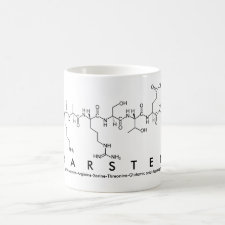
Authors: Canfarotta F, Waters A, Sadler R, McGill P, Guerreiro A, Papkovsky D, Haupt K, Piletsky S
Article Title: Biocompatibility and internalization of molecularly imprinted nanoparticles.
Publication date: 2016
Journal: Nano Research
Volume: 9
Issue: (11)
Page numbers: 3463-3477.
DOI: 10.1007/s12274-016-1222-7
Abstract: Molecularly imprinted polymers (MIP) are receiving increasing attention thanks to their robustness, stability, and inexpensive manufacture compared with their bio-analogues such as antibodies. The molecular imprinting process can be defined as the generation of molecular recognition sites in a synthetic polymer. The template-derived sites created within a polymeric matrix allow MIPs (often referred as plastic antibodies) to selectively recognize and bind to the target molecule. Therefore, MIPs can be used in sensors and in separation and diagnostics. Owing to their size and functional properties, MIP nanoparticles (NPs) can potentially be used in biomedicine, but comprehensive analysis of their interaction with cells and in vitro toxicological tests must be performed first. Herein, we report the synthesis of bare and coreGă˘shell imprinted NPs using an innovative solid-phase approach and the toxicological evaluation of such NPs in different cell lines (HaCaT, MEFs, HT1080, and macrophages). We also evaluated the influence of the protein corona on particle stability, the internalization of NPs in cells, and the influence of various surface coatings. Studies on the metabolic effects of imprinted NPs on fibroblasts showed that bare MIPs do not alter cell metabolism, whereas some issues arise when specific particle coatings are used. Furthermore, in vitro cytokine release studies revealed that macrophages were not activated in the presence of the MIPs evaluated in this study. The results suggest that MIP NPs are biocompatible, paving the way for their in vivo application
Template and target information: melamine, MEL
Author keywords: PEGylation, Core-shell, toxicology, inflammatory response, particle uptake, metabolism



Join the Society for Molecular Imprinting

New items RSS feed
Sign-up for e-mail updates:
Choose between receiving an occasional newsletter or more frequent e-mail alerts.
Click here to go to the sign-up page.
Is your name elemental or peptidic? Enter your name and find out by clicking either of the buttons below!
Other products you may like:
 MIPdatabase
MIPdatabase









